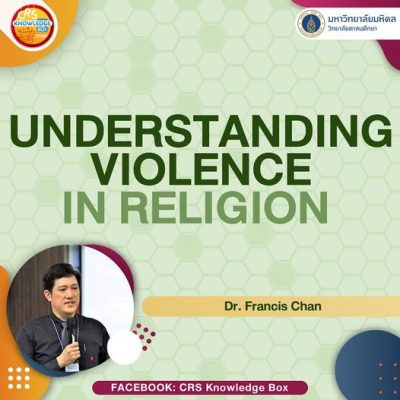It is often assumed that religion eschews violence and is a force for peace, though the reality is a rather mixed picture. We are incensed every time we hear media reports of violence being committed in the name of religion. We wonder: What has gone wrong? Often, we try to rationalize it by saying: It must be the people’s misinterpretation of their own religion.
In a 2014 CNN interview, prominent American scholar of religion Reza Aslan, stated that Islam is neither a religion of violence nor of peace. “It is just a religion, and like any other religion, it will be violent or peaceful depending on what the person brings to it.” This sets the record straight by putting into question our common assumption that any religion by its very nature “must” be against violence.
Recent studies in the field of evolutionary psychology gives us more insights into this issue. First is that the most fundamental drive in all humans is survival. This means humans will, often subconsciously and in response to emotional rather than intellectual stimuli, act in ways that are advantageous to their survival and correspondingly act to eliminate perceived threats to their survival.
Second is that humans are by nature and design social beings. According to the late American sociobiologist Edward O. Wilson, the “absolute universals of human nature, and hence of culture, is to form groups” and to “defend the group enthusiastically against rival groups” (The Social Conquest of Earth, 2013). And one parameter in forming groups is the religious community one belongs to. The community defined by its religious identity is a context, or stage, in which the game of being human, with its basic drive for survival, is being played out.
Looked at from this perspective, violence perpetrated in the name of religion is not done with the purpose of adhering to religious teachings but as a subconscious drive to defend the community or tribe perceived as being threatened. Consciously, though, there would be justifications for violent acts that one could get by combing the Scriptures and other religious texts, if one searches enough, as well as from past examples of actions by co-religionists.
Not all will accept this functionalist view of religion, of course. The phenomenologists of religion will argue that religion is highly complex and cannot be reduced to being just a social group, and religion must be understood on its own terms. However, in this instance the functionalist view does contribute to helping us understand just why “religion” has been violent at times and in certain communities.
